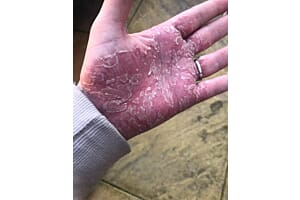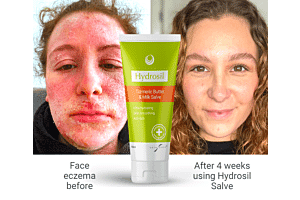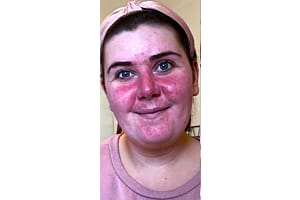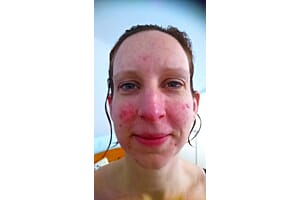Find out how to prevent hay fever by avoiding common triggers
Just because you have not got it yet, doesn’t mean you wont. Hay fever can develop at any age and more middle-aged people are developing it now more than ever. This is due to increased pollen counts and air pollution. Proteins present in flowers, and plant pollen can cause everything from an itchy nose, skin rashes, streaming eyes, sore and swollen eyelids, swollen tongue and headaches. Making the sufferers life hell for a few months. In addition, pollution can make hay fever symptoms even worse, so if you suffer from hay fever and live in the city, then symptoms can sometimes be unbearable. In this blog, we have provided you with tips and tricks on how to prevent hay fever.
What can cause a Hay fever trigger?
1. Air Pollution
Air pollution plays a role in the severity of allergic reactions. Pollutants can make the proteins in pollen more potent. Nitric oxide from exhaust fumes slows down the clearing of mucus from the nose.
Hay fever prevention tips:
- If you live in the city, wear a filter mask during the hay fever season
- Coat the inside of the nose with Vaseline to stop so many fumes and particles getting up the nose
2. Plants
Birch tree pollen is the first pollen to appear in the hay fever season. Around 25% of hay fever sufferers are allergic to birch tree pollen. Birch trees are particularly problematic because of the way the body reacts to the protein the pollen produces. The ragweed plant (ambrosia artemisiifolia) is spreading throughout Europe and is also highly allergenic. Oil seed rape, oak, grass and nettles are also all common plants for hay fever sufferers to react to.
Plants can also cause allergies on the skin. PhytoPhotodermatitis is an allergic reaction caused by the chemical mix of UV light and the juices produced by certain plants and shrubs that bloom in Spring in most English gardens and countryside. PhytoPhotodermatitis causes hay fever like symptoms as well as rashy, red skin.
Hay fever prevention tips:
- Wear gloves and sunglasses (with side wings) when gardening - Try to garden when there is a breeze so pollens get blown away
- Garden in the early morning while plants are still dewy as there is less pollen in the air - Calamine lotion will soothe any itching
- After gardening take a bath in an oat bath soak to reduce itching and rashes
3. Alcohol
Alcohol can make hayfever worse. Not only does it dehydrate you, making symptoms seem worse, it may also increase your sensitivity to pollen. Research has found that drinking more than two glasses of wine a day almost doubles the risk of a woman developing allergies in general.
Hay fever prevention tips:
- Drink less alcohol during the hay fever season
- Drink more water than normal
- Water down alcoholic drinks
4. Food
Many hay fever sufferers can get a swollen tongue. Some foods can make hay fever symptoms worse and cause ‘oral allergies’, as they have similar proteins in them as pollen. These include; Celery, apples, pears, cherries, apricots, plums, tomatoes, melon, peaches, kiwis, potatoes, carrots, celery, hazelnuts, almonds, walnuts, peanuts and soya beans.
Hay fever prevention tips:
- Avoid raw fruits and root plants during hay fever season- cook all vegetables and fruits before eating as this breaks down the allergen proteins
- Take an omega 3 and 6 supplement for 3-4 months over the hay fever season. A German study in 2005 found that the more omega 3 fatty acids people had in their system, the risk sensitivity to hay fever is reduced.
5. Smoking
Many adults who have been smokers and then quit develop hay fever. Smoking weakens the immune system, but when you quit the immune system gets a ‘kick start’ and this can trigger hay fever and other allergies. Quitting smoking is a great way on how to prevent hayfever.
Hay fever prevention tips:
- Quit smoking in the summer to give your body as much time as possible to adjust before the hay fever season kicks in.
Effective Treatments on How to Prevent Hay Fever
1. Nasal sprays for hay fever
Steroid nasal spray is one of the most effective hay fever treatments. Look for ones containing fluticasone propionate (available over the counter), mometasone furoate or fluticasone furoate (both prescription-only), and start taking them two weeks before the pollen that affects you comes into season.
2. Medication and vaccines for hay fever
There is a vaccine that is now available for hay fever sufferers. This usually involves having injections or tablets of the pollen you’re allergic to over a period of three years. Patients with grass pollen allergy tend to be given daily tablets, a common one is Grazax. The treatment has to be prescribed by an allergy specialist and the best results are seen four months after treatment begins.
3. Treatment for sore and red eyes
Soreness, redness and dryness around the eyes is a common, uncomfortable and long lasting symptom of hay fever but it’s often the one symptom many sufferers forget to treat until it’s too late.
Skin Shop’s Remedies to prevent hay fever
- Try Skin Shop’s Dry Eye Gel, a natural anti-inflammatory eye gel, use this gel twice daily or as soon as hay fever symptoms begin to irritate the eye area.
- Take a good fish oil supplement a month before and during the hay fever season to help reduce allergic symptoms.
- Another option is nasal air filters, which are rubber implants worn outdoors to prevent allergens from being inhaled.







